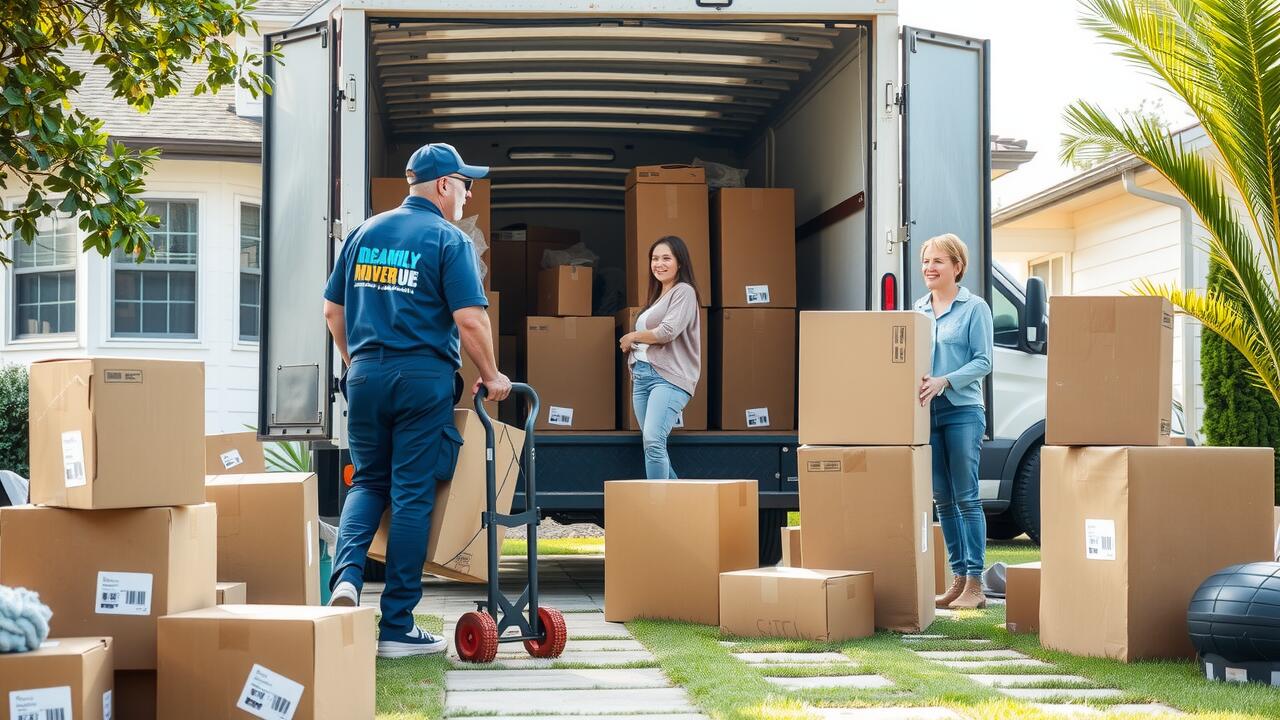
Table Of Contents
How to Get Accurate Quotes
To obtain accurate quotes for your move, start by understanding the specific needs of your relocation. Make a detailed inventory of your belongings, noting large items and any special services required, such as packing or storage. Many moving companies offer free estimates, so take advantage of this to get a clearer picture of your potential costs. Providing the same information to each company will lead to more comparable quotes, helping you make an informed decision.
When requesting estimates, be transparent about your moving date and any unique circumstances surrounding your move. Local and Long Distance Moving in Vancouver, Washington can vary significantly based on the time of year, day of the week, and distance involved. Having a clear timeline will assist movers in giving you accurate quotes that reflect any potential fluctuations in prices. Always ask if the quote includes additional fees or potential charges, ensuring you avoid any surprises on moving day.
Requesting Estimates from Multiple Companies
When planning a move, obtaining estimates from multiple moving companies is essential for understanding potential costs. Local and long distance moving in Vancouver, Washington can vary significantly depending on the services provided, the distance to your new location, and the size of your belongings. Contacting several movers allows you to compare their rates and services, ensuring you choose the option that fits your budget and needs best. It's important to provide consistent details regarding your move to each company to secure accurate quotes.
During the estimation process, don’t hesitate to ask questions about the services involved and any additional fees that may apply. Movers often have different policies regarding packing, loading, and unloading, which can influence the final cost. By gathering a range of estimates, you can gain a clearer picture of the market rates for local and long distance moving in Vancouver, Washington, and identify any potential red flags. Properly researching and vetting these companies will lead to a smoother transition to your new home.
Tips for Reducing Moving Expenses
One effective way to reduce moving expenses is to declutter before the move. Take the time to sort through belongings and identify items that can be sold, donated, or discarded. Reducing the overall volume of items will not only lower the cost of transportation but also simplify the packing process. A thorough decluttering can lead to significant savings, especially for local and long distance moving in Vancouver, Washington, where costs often depend on the weight and size of your load.
Another strategy involves being flexible with your moving dates. If possible, choose an off-peak time to schedule your move. Rates tend to be higher during weekends and the beginning or end of the month when demand is at its peak. By opting for mid-week or mid-month dates, you might secure better rates and availability, making your moving experience smoother and more affordable.
Decluttering Before the Move
Decluttering before a move can significantly reduce costs and simplify the process. By evaluating your belongings and determining what you truly need, you can minimize the volume of items that require packing and transportation. This not only saves money on moving expenses but also lightens the load for local and long distance moving in Vancouver, Washington. A streamlined inventory makes it easier to organize your new space and can even improve your overall moving experience.
Consider donating or selling items that you no longer use or need. This not only helps others but can also provide some extra cash or tax deductions. Garage sales or online marketplaces offer great platforms for offloading unused items. The less you have to move, the more efficient the entire process becomes, making it a crucial step in preparing for any moving scenario.
Insurance Options for Moving
When planning a move, it’s essential to understand the insurance options available to protect your belongings. There are typically two main types of coverage: basic liability and full-value protection. Basic liability coverage is often included at no extra cost, but it offers limited claims based on the weight of the items. In contrast, full-value protection ensures that the moving company is responsible for the replacement value of your belongings, providing greater peace of mind during the process.
For households undergoing Local and Long Distance Moving in Vancouver, Washington, it’s advisable to consider adding insurance coverage if your possessions hold significant value. Evaluating the worth of your items can help you decide which type of insurance best meets your needs. Furthermore, be sure to review your homeowner's insurance policy, as it may already offer coverage for items in transit. Having a clear understanding of insurance options can help you make informed decisions and safeguard against potential losses.
Understanding Liability Coverage
When planning a move, understanding liability coverage is essential for protecting your belongings. Most moving companies in Vancouver, WA, offer varying levels of liability coverage. This coverage typically falls into two categories: basic and full value protection. Basic coverage, often included in the moving cost, provides limited compensation for damages, usually based on weight rather than actual value. Full value protection, while more expensive, ensures that items lost or damaged during the move are either repaired or replaced.
Local and long distance moving in Vancouver, Washington, presents unique challenges. Given the distance or complexity involved, ensuring adequate coverage can save you from financial loss. It's wise to thoroughly review the options your moving company offers. Ask questions to clarify any terms and conditions, ensuring you understand the extent of the coverage available. This proactive approach can help you make informed decisions about your move and the protection of your possessions.
FAQS
What factors influence the cost of movers in Vancouver, WA?
The cost of movers in Vancouver, WA can be influenced by several factors, including the distance of the move, the size and weight of your belongings, the time of year, and any additional services you may require, such as packing or storage.
How can I get an accurate estimate for my move?
To get an accurate estimate, it’s best to request quotes from multiple moving companies. Be sure to provide detailed information about your move, including the size of your home, the number of items being moved, and any special requirements.
Are there ways to reduce my moving expenses?
Yes, you can reduce moving expenses by decluttering your home before the move, which can decrease the volume of items to be moved. Additionally, consider moving during the off-peak season or asking for help from friends to handle packing and organization.
What insurance options are available for my move?
Moving companies typically offer different insurance options, including basic liability coverage, which is often included in the moving cost, and full-value protection, which provides a higher level of coverage for your belongings in case of loss or damage.
Should I consider hiring a moving company or doing it myself?
Whether to hire a moving company or do it yourself depends on your budget, time constraints, and the complexity of the move. Hiring professionals can save you time and reduce stress, while DIY moves may be more cost-effective if you have the resources and support.
